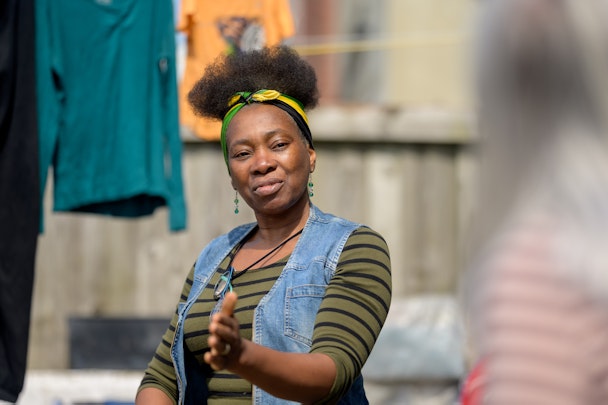How to live long and prosper: healthcare marketing to the silver economy
Building on the agency’s own research, Bray Leino’s Gideon Aroussi profiles the ‘silver economy’: health-conscious older consumers who command a large and growing share of the world’s disposable income.

What do marketers need to know about the growing ‘silver economy’? / Centre for Ageing Better via Unsplash
By the time you reach 55, if you haven’t had a health scare yourself, you will know someone who has. You become aware that you’re not as indestructible as you seemed in your teens and 20s. Because of this, the over-55s are more proactive with their health and well-being, increasingly aware that health is precious and not guaranteed.
Last year, we partnered with Solaris Health to commission one of the largest healthcare marketing surveys in recent years. Here, we discuss some of the key trends among over-55s and what they mean for healthcare marketing to the silver economy.
Advertisement
Health consciousness
Our research, conducted by QuMind, revealed that as people age, they have two big health concerns. One is ‘how can I ensure that I live for as long as I can with a good quality of life?’ The second is ‘how can I ensure I remain happy and comfortable?’
We found that 36% of over-55s agree that 'taking a proactive role in my health and wellbeing is a top priority in my life’, a significantly higher proportion than younger adults (29% for 18-34s). This proactivity is likely prompted, in part, by a higher reliance on prescribed medicines – a constant reminder of the importance of health. 37% of people aged 55+ take prescribed medication, a proportion that is unsurprisingly far greater than younger adults.
Other reported motivations for over-55s taking responsibility for their health include (in the UK) lack of faith in the NHS (either through direct experience or media coverage), preserving independence, and wanting to avoid being a burden.
Advertisement
Mental health, work and treatment
Mental health is also to the fore, with women aged 55+ the most likely to take medication for their mental health. While there are many reasons why people start taking medication, many women said their feelings of depression were triggered by family or personal issues. Despite this, relatively few over-55s have cut their working hours for the sake of their mental health, with work/life balance a much bigger consideration for younger adults.
Older generations are also less likely to meditate – 9% of people aged 55+ practice meditation compared with 20% of 18-34s. They are more likely to have regular dental, medical and optician appointments, implying that they see more benefit in proven conventional medicine than treatments that are focused on wellbeing. It’s likely that some of this preference is due to generational attitudes and habits built up over time. It’s also likely that when we need to address real health problems, tried and tested medical science wins out. This preference for established treatments suggests that solid evidence with proof of efficacy and outcomes should play a central role in health marketing to the silver economy.
Suggested newsletters for you
Exercise and living longer
Looking at activities undertaken for health benefits, over-55s are into lighter exercise, such as walking, whereas 18-34s favor higher-intensity exercise workouts and sport. Proactivity towards exercise among 18-34s is more motivated by wanting to look good, whereas at 55+ it’s about living longer.
Older adults are significantly more likely to say they consciously eat a healthy or well-balanced diet (53% versus 34% of 18-34s) and take supplements or vitamins (38% versus 25%).
Two different markets?
The findings imply that health and well-being brands might need to adopt different strategies for older and younger audiences.
Older adults’ proactive attitude towards health and well-being means that brands do not need to be interruptive and sales-y in their marketing messages. This group of people is actively looking for treatments, and it means that awareness and clarity of purpose are vital, so the health benefits and role in preserving people’s independence are clear.
This group’s skepticism over the health service’s ability to keep them well means that as well as promoting the ability to take control of their health, there could be value in talking about the role self-care can play in preserving essential resources, echoing the UK’s Covid-19 sentiment of ‘stay home, protect the NHS, save lives’. There could also be a role for the behavioral science strategy of loss avoidance, communicating a brand’s ability to help older people avoid losing their independence, health, quality of life, and so on.
Younger adults are likely to be in good health, not taking prescription medicine, and more concerned with their immediate well-being than any longer-term health issues. They will be most open to messages that focus on enhancing their lifestyle and helping them live the balanced life they crave.
Health worries, long-term medication and physical deterioration feel remote from most young adults and the barriers to 18-34s taking a more proactive role include lack of time, lack of information, emotional readiness, and expense. This demographic is more likely to use friends and family as an information source and, predictably, more likely than people in the 55+ bracket to use digital resources, such as apps, forums, communities and online medical services.
Content by The Drum Network member:

Bray Leino
We drive growth through creativenergy®, by going beyond, to find the most powerful way. It’s the way we began back in 1973. Before email, before mobile phones,...
Find out more
